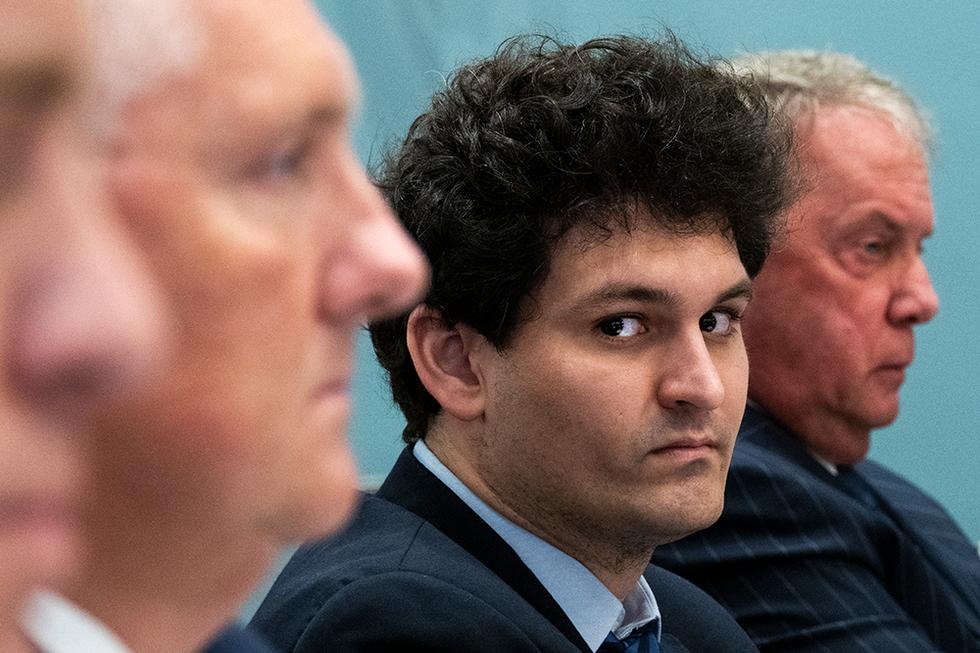Crypto-centred media firm CoinDesk Inc has sought investment banking companies amid a potential sale of its operations, its chief executive said in a statement as quoted by global media.
A Wall Street Journal (WSJ) report revealed that investment bankers from Lazard Ltd have expressed interest along with other unsolicited offers of up to $200 million, people familiar with the matter said.
Digital Currency Group Inc (DCG) owns CoinDesk and acquired the latter for $500,000 in 2016. The sale led to roughly $50 million in earnings in 2022 due to online adverts, index and events, and others, the firm added.
Grayscale Investments, its subsidy firm, is valued at $13.5 billion via its Grayscale Bitcoin Trust. It currently faces significant issues along with Bitcoin (BTC) mining firm Foundry, amid the ongoing FTX collapse.
“Over the last few months, we have received numerous inbound indications of interest in CoinDesk,” company chief executive Kevin Worth said in a statement.
The news comes amid a major shift in the cryptocurrency market, namely after FTX bankruptcy in mid-November due to fraud and funds mismanagement, among other offences.
Further issues surfaced after Genesis Global Trading Inc laid off 30 percent of its employees and faces an impending bankruptcy as early as this week, Bloomberg revealed on Wednesday.
Insolvent cryptocurrency trading firm FTX said in a statement that hackers stole roughly $415 million in digital assets from centrally-held accounts.
The theft comprises a large number of assets the company hopes to recover, it said in a presentation.
According to the bankrupt firm’s “Maximizing FTX Recoveries” presentation, its total liquid assets for recovery to $5.5 billion USD. This also includes “unauthorized third-party transfers” totalling $323 million from its global platform, FTX.com. FTX hedge fund Alameda Research lost a further $2 million to hackers.
It added,
“FTX Debtors have identified approximately $181 million of digital assets associated with FTX US as of the Petition Date, $90 million of which was subject to unauthorized third-party transfers post-petition, $88 million of which is in cold storage under the control of the FTX Debtors, and $3 million of which is pending transfer to cold storage under the control of the FTX Debtors.”
Conversely, the company outlined in its presentation that $529 million in FTT, the firm’s native token, were classified as liquid assets. FTT collapsed amid a massive liquidity crunch in mid-November last year.
John Ray, acting chief executive for the restructuring firm, said in a statement as cited by CNBC,
“We are making important progress in our efforts to maximize recoveries, and it has taken a Herculean investigative effort from our team to uncover this preliminary information.”
Hack Job at FTX?
The news comes after the company faced security breaches in November last year, potentially leading to the stolen funds. At the time, the phishing attacks forced FTX to suspend transactions after it reported more than $570 million in losses. Roughly $100 million of the funds remain missing.
Currently, FTX’s former and disgraced CEO, Sam Bankman-Fried, faces charges of fraud and misappropriation of funds, among others. Total charges could hit him with up to 115 years in prison. A US-based task force has been deployed to recover the stolen funds, including those in the presentation.
The World Economic Forum (WEF) has unveiled a novel toolkit for decentralised autonomous organisations. The document has received contributions from over 100 experts and aims to “develop effective operational, governance and legal strategies.”
The paper outlines a theoretical approach to DAOs and aims to unite professionals to tackle further adoption of Web3 technologies.
It read: “Our goal is to provide tools to increase understanding, demystify DAO operations, enhance DAO governance and frame the legal and regulatory questions.”
Speaking further, the initiative stated local ‘ambassadors’ and DAO community specialists could “facilitate onboarding and other key operational processes.”
It also said that sufficient policy and legal DAO frameworks were “crucial” to benefitting users and mitigating risks. Other risks included proposals from the Organisation for Economic Cooperation and Development (OECD) and the US Infrastructure Bill.
Such regulatory frameworks could “create competing requirements for DAOs,” it added.
It concluded:
“Like the rest of web3, DAOs are a novel and emergent phenomenon. In less than a decade, they have gone from theory to practice, mushrooming across sectors. While proponents project the continued and rapid expansion of DAOs, critics view them as ephemeral. Only time will reveal the results of the DAO experiment, demonstrating if, when and how DAOs will ultimately have their greatest impact.”
The news comes as the WEF continues to explore DAOs, namely after publishing several reports on the Web3-based organisational structure. The Davos-based event is currently taking place from 16 to 20 January and has gathered numerous world leaders, analysts, and experts.
Bank of England (BoE) governor Andrew Bailey has cautioned people on adopting a digital pound for the United Kingdom, reports revealed.
In a Parliament Treasury Select Committee meeting, he stated he was not sure if the country currently needed a British digital pound.
He said that the Bank of England currently had a “wholesale central bank money settlement system” with further upgrades.
Bailey added the Bank of England did not plan to replace physical money with digital currencies, adding retail payment changes were not needed.
Speaking further, he said: “We have to be very clear what problem we are trying to solve here before we get carried away by the technology and the idea.”
Eurozone Crypto Euphoria
The news comes just after finance ministers in the European Union voiced support for a digital euro on Monday. Finance ministers issued a document outlining plans to back a future CBDC.
Such efforts would need further talks at the political level, it said, adding it would first need to assess environmental, privacy, cybersecurity, and other factors.
Despite the forward movement, Tony Yates, a former advisor to Britain’s central bank, said in a Financial Times article that costs and risks linked to creating CBDCs were “suspect.”
He said in his article,
“CBDC accounts may drain money from the banks, particularly during a period of heightened financial risk. This would force banks either to find new sources of funds, or shrink their loans. That could amplify tightening in financial conditions when the central bank is trying to loosen them. The central bank could respond by simply reinvesting CBDC deposits back in the banks. But would this leave us in a better place?”
Crypto Coins and CBDBs for the People
The news comes as several countries, including China, El Salvador, Venezuela, Russia, the Bahamas, Sweden, and many others have begun piloting national cryptocurrencies.
El Salvador approved legislation in 2021 to determine how it plans to use bitcoin at the national level. Shortly after, President Nayib Bukele tweeted that he backed the cryptocurrency after his country purchased several waves of Bitcoin.
Conversely, China has rolled out several test pilots of its national digital yuan, which people can use at physical and online retail stores. Locations such as Beijing, Guangzhou, and others have begun using the cryptocurrency feature. Alipay and WeChat Pay have also accommodated the CBDC with app features.
Three Arrows Capital (3AC) founders Kyle Davies and Su Zhu have reportedly launched plans to raise $25 million USD in capital for a new cryptocurrency exchange.
The group revealed the new platform, GTX, in a presentation. The 3AC founders will partner with Coinflex’s Mark Lamb and Sudhu Arumugam. The initiative aims to protect bankrupt firms from claims.
The presentation added:
“FTX users are selling claims at ~10% face value for immediate liquidity or waiting 10+ years for the bankruptcy to process disbursements […] Our legal team will streamline and automate claims onboarding to GTX and make it the dominant marketplace for FTX and other bankrupt companies’ claims.”
In a tweet, Colin Wu stated that Su Zhu replied, “Yes, no comment, just busy building it.”
The founders of 3AC, Zhu Su and Kyle Davis, and the two founders of CoinFlex have launched a new project, GTX, which is raising a seed fund of $25m to trade claims from creditors. Su Zhu acknowledged the news to WuBlockchain: “yes, no comment, just busy building it”.
— Wu Blockchain (@WuBlockchain) January 16, 2023
GTX will provide a platform for trading collateralised claims to allegedly “fill the power vacuum left by FTX.” It also plans to enter stock exchanges and other regulated markets.
The news comes after Coinflex blocked withdrawals due to a massive $84 million USD loss of revenues. The company has begun restructuring to tackle the revenue crisis.
Additionally, 3AC liquidated in late June and its founders disappeared, with reports stating they had fled to Indonesia and the United Arab Emirates (UAE). Su slammed FTX and the Digital Currency Group for its collapse.
Despite this, courts slapped the 3AC founders with subpoenas on 5 January. Singapore’s Monetary Authority (MAS) vowed in recent months to tighten regulations on cryptocurrency markets following the collapse.
Shibu Inu (SHIB) developers have announced plans to roll out a beta version of Shibarium, a new layer-2 network overlayed on its Ethereum mainnet.
According to the blog post, Shibarium will provide tools to grow its community in line with its founder’s plans. Developers stated that Shibarium aimed to release the project “soon.”
They said, “Patience is key, and some see Shibarium as a price pumping tool, but that is not the project’s focus and never has been. Shibarium is being built to fulfill Ryoshi’s vision and provide the community with a tool to build and grow the project on their own terms. With the imminent Network launch, we invite everyone to read this article and familiarize themselves with the concepts before testing.”
Shibarium Doggo-Themed Plans
Developers added the project’s goal was to “revolutionize the Shiba ecosystem.” It aims to minimise obstacles to conducting small transactions and provide cheaper, faster decentralised transactions.
Efforts would also help people develop new solutions such as decentralised applications (dApps) and integrate non-fungible tokens (NFTs).
One of the key components of the project is a new burning mechanism, which will take place when users make transactions on the network. The announcement continued: “[All] transactions on the network will have an implicit burn amount for SHIB token.“
#ShibArmy I need a quick vote: We have been kindly invited to work with the WORLD ECONOMIC FORUM as it pertains to their MV global policy. Would love to know what you all think because it's not our decision, but yours.
— Shytoshi Kusama™ (@ShytoshiKusama) November 22, 2022
The news comes after Shibu Inu developer Shytoshi Kusama tweeted on 22 November last year that the World Economic Forum (WEF) invited the cryptocurrency project to work jointly to develop a global metaverse policy. Other major tech firms such as Meta Platforms, Decentraland, and others would contribute to outlining the policy.
Shibu Inu and crypto rival Dogecoin spiked in value. Dogecoin and Shibu Inu jumped 14 percent and 40 percent, respectively, after Ethereum completed its merge upgrade.
Cryptocurrency lending firm Nexo Capital agreed on Thursday to pay $45 million in fines after the United States Securities and Exchange Commission (SEC) slapped them with charges.
The penalty consists of $22.5 million to the SEC and an additional $22.5 million to state regulators, the SEC said in a statement.
The charges are linked to the platform’s Earn Interest Product, which began in June 2020. Crypto investors could offer their assets for alleged earned interest but ceased the product in February last year.
At the time, the SEC slapped a company for similar offences, triggering the firm to cease offerings for the Earn programme.
Nexo stated it was “content” with its settlement, adding: “We are confident that a clearer regulatory landscape will emerge soon, and companies like Nexo will be able to offer value-creating products in the United States in a compliant manner.”
Speaking further, Andrew Harnett, North American Securities Administrators Association (NASAA) president, said that US securities laws were “designed to protect investors through full and fair disclosure.”
He continued: “State securities regulators continue to lead the effort to ensure companies involved in offering digital asset investments comply with our laws and that investors are treated fairly.”
Complying with the ruling, Nexo said it would stop selling its US products over the next few months due to US regulations. The SEC has also hit companies such as Genesis and Gemini lawsuits over allegations of its interest-earning programme.
Washington-based rural state bank Moonstone Bank announced on Wednesday it would leave the cryptocurrency market and return to its status as a community bank.
The comment comes after Alameda Research, FTX’s hedge fund division, invested $11.5 million USD in the bank. According to the latter’s statement, the shift in focus comes after “recent events in the crypto assets industry and the changing regulatory environment surrounding crypto asset businesses.”
The bank will no longer brand itself as Moonstone Bank and rebrand as Farmington State Bank to “return to its roots.”
It continued: “The return to its role as [a] community bank will be seamless for the bank’s local customers in the Farmington community with no change or disruption of services. The bank has consistently remained committed to safe and sound practices, has kept its balance sheet liquid and customer deposits have remained secure and fully accessible.”
The announcement comes after Deltec chairman Jean Chalopin bought out Moonstone Bank in 2020. According to reports, his firm is an FTX banking partner and received $11.5 million in investments.
Investments from the now-bankrupt hedge fund firm allowed his banking business to transform as a cryptocurrency financial services firm.
The news comes after numerous companies, including BlockFi, Genesis, Gemini, and many others have faced the fallout from the ongoing FTX collapse. Due to ongoing capital crises, Genesis could reportedly file for bankruptcy as early as this week due to a liquidity crunch.
US authorities have coordinated with French counterparts to arrest Bitzlato founder Anatoly Legkodymov in a “major international cryptocurrency enforcement action.”
The United States Department of Justice (US DoJ) announced the news in an 18 January statement. US Deputy Attorney General Lisa Monaco revealed US and French police had seized Bitzlato’s website.
The statement continued that the cryptocurrency platform was a “primary money laundering concern” allegedly linked to illegal Russian financing.
Monaco claimed the US DoJ, US Treasury Department, and French authorities launched the crackdown, accusing Bitzlato of “conducting a money transmitting business that transported and transmitted illicit funds and that failed to meet U.S. regulatory safeguards.”
Police arrested Legkodymov, who currently lives in China, in Miami on 17 January. He will face charges at the US District Court for the Southern District of Florida.
Monaco added in her statement,
“Today the Department of Justice dealt a significant blow to the cryptocrime ecosystem. Overnight, the Department worked with key partners here and abroad to disrupt Bitzlato, the China-based money laundering engine that fueled a high-tech axis of cryptocrime, and to arrest its founder, Russian national Anatoly Legkodymov. Today’s actions send the clear message: whether you break our laws from China or Europe—or abuse our financial system from a tropical island—you can expect to answer for your crimes inside a United States courtroom.”
Ransomware and Darkwebs
The US DoJ press release continued, explaining Bitzlato allegedly provided funding for the Hydra darknet marketplace, where people could send money from sources such as ransomware attacks.
“[Bitzlato] allegedly became a haven for criminal proceeds and funds intended for use in criminal activity. Bitzlato’s largest counterparty in cryptocurrency transactions was Hydra Market, an anonymous, illicit online marketplace for narcotics, stolen financial information, fraudulent identification documents, and money laundering services that was the largest and longest running darknet market in the world.
The statement added that Bitzlato and Hydra Market also traded over $700 million USD “either directly or through intermediaries.” US and German law enforcement later “shuttered” the latter in April last year.
The statement also claims Bitzlato also received over $15 million USD in ransomware funds.
The news comes after the Singaporean Monetary Authority (MAS) cracked down on Russian cryptocurrency exchanges in early November.
Reports found the central bank aimed to comply with US and European Union-led Russian sanctions allegedly linked to money laundering for pro-Russian groups in the ongoing war in Ukraine.
Crypto Crisis Continues
The story is the latest significant blow to the cryptocurrency industry, namely amid the ongoing FTX collapse and arrest of disgraced chief executive Sam Bankman-Fried. Released on $250 million USD bail, he faces eight counts totalling 115 year in court for fraud, misappropriation of funds, and other offences.
New York authorities also detained Aurelien Michel at John F Kennedy Airport for creating a fake Mutant Ape Yacht Club non-fungible token (NFT) and later launching a rug pull. Investors in the decentralised autonomous organisation (DAO) lost up to $2.9 million USD.
Genesis Global Capital is set to proceed with bankruptcy filings as early as this week, Bloomberg News reported on Wednesday.
Citing people with knowledge of the matter, the report stated that the cryptocurrency trading platform’s collapse came after it froze customer redemptions on 16 November.
The news comes just after FTX’s collapse and subsequent bankruptcy proceedings on 11 November. Numerous crypto firms have followed, including crypto lending company BlockFi and the largest publicly traded cryptocurrency mining firm in the United States, Core Scientific Inc.
Bloomberg added Genesis and parent firm Digital Currency Group have failed to agree on a proposal. Creditors involved in the case include Kirkland & Ellis and Proskauer Rose have joined advising groups.
Gemini-Genesis Partnership
The cryptocurrency enterprise is also deadlocked with Gemini founders Cameron and Tyler Winklevoss. The latter accused Genesis of owing over $900 million USD.
The partnership led to the launch of crypt lending product Earn, which faced US Securities and Exchange Commission (SEC) charges of selling illegal securities to customers.
Recently, fintech firm Curve proposed to buy BlockFi following FTX’s collapse in mid-November. Curve aims to buy out BlockFi’s massive 87,000 customer base after the latter suspended access to credit cards.












